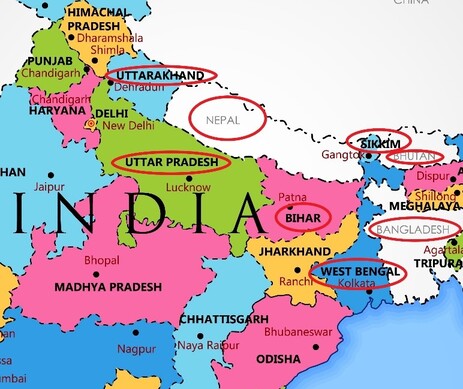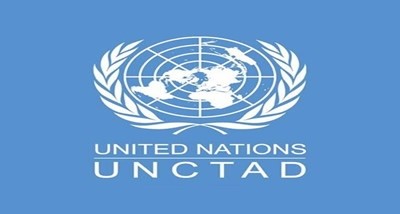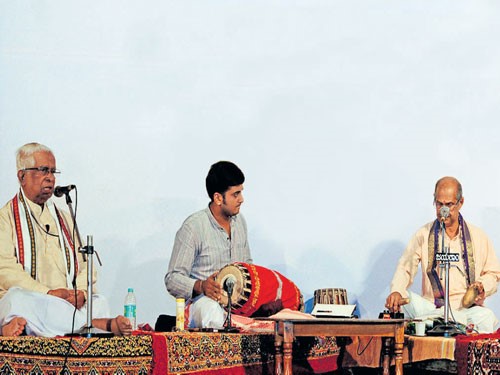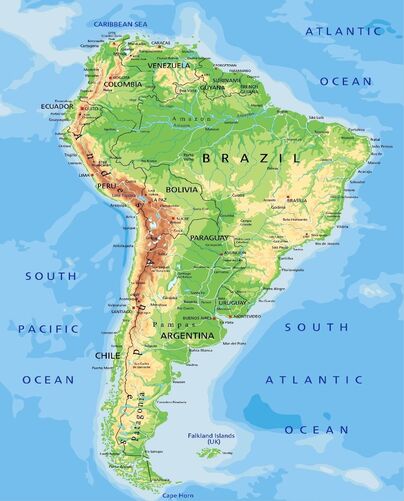Daily Current Affairs and GK | 17 June 2020

Main Headlines:
- 1. India joins Global Partnership on Artificial Intelligence (GPAI)
- 2. The Grand Anicut Dam on the Cauvery River was formally declared open
- 3. Senior journalist and freedom fighter Dinu Randive passed away
- 4. Yoga week being organized in Gujarat
- 5. Uttar Pradesh, the top state in the country providing employment to workers under MNREGA
- 6. World Investment Report 2020 released
- 7. A tunnel sanitizer based automatic temperature controller device developed
- 8. Online broadcast of traditional art of Talamaddale due to COVID-19
- 9. Researchers from Chile and Argentina unearthed the teeth of an old mammal
- 10. World Day to Combat Desertification and Drought: 17 June
Happy February get 35% Off
Use Coupon code FEB26
1. India joins Global Partnership on Artificial Intelligence (GPAI)
- Recently India has joined the Global Partnership on Artificial Intelligence (GPAI).
- India has joined the GPAI as a founding member. With this, India will be able to participate actively in the global development of Artificial Intelligence.
- It will also leverage its experience around the use of digital technologies for inclusive growth.
- Global Partnership on Artificial Intelligence (GPAI):
- GPAI is the first of its kind initiative.
- The aim is to develop a better understanding of the challenges and opportunities around Artificial Intelligence using the experience and diversity of participating countries.
- It will be supported by a secretariat, which will be hosted by the Organization for Economic Co-operation and Development in Paris.
- Its founding members are the United States, Britain, the European Union, Australia, Canada, France and others.

(Source- News on AIR)
2. The Grand Anicut Dam on the Cauvery River was formally declared open
- Recently the Grand Anicut Dam on the Cauvery River has been formally declared open by the State Ministers of Tamil Nadu.
- This dam is locally known as Kallanai. The sowing of Kuruvai crops mainly depends on the opening of Kallanai.
- This dam will ensure adequate availability of about three and a half lakh hectares of agricultural land in the delta region.
- Kuruvai are the crops grown in the Cauvery delta of Tamil Nadu state in India.
- Cauvery:
- Kaveri is an Indian river that flows through the states of Karnataka and Tamil Nadu.
- It is the third largest river in South India after Godavari and Krishna.
- Its source is the Brahmagiri Hills in Karnataka. It drains its water into the Bay of Bengal.
- Harangi, Hemavati, Shimsha, Arkavati are its major tributaries.
3. Senior journalist and freedom fighter Dinu Randive passed away
- Recently, senior journalist and freedom fighter from Maharashtra Dinu Randive passed away at his residence in Mumbai due to old age. He was 95 years old.
- Dinu Randive took part in the Samyukta Maharashtra movement of the state of Maharashtra.
- He also participated in the Goa liberation movement.
- He was born in 1925 near Mumbai. He started his journalism career in 1956.
- He was awarded the Lifetime Achievement of Mantralaya Vidyamandal Vathar Sangh and Mumbai Press Club RedInk Award for lifetime achievement.
4. Yoga week being organized in Gujarat
- Yoga week is being celebrated in the state of Gujarat.
- On the occasion, various programs are being organized by Gujarat, State Yoga Board through various social media platforms as part of International Yoga Day celebrations.
- This year, International Yoga Day will be celebrated in the state on the theme of Yoga at home, Yoga with family.
- On 21 June 2015, the first International Day of Yoga was celebrated worldwide.
- Yoga:
- Yoga is a group of physical, mental and spiritual practices or disciplines.
- It originated in ancient India.
- Yoga is one of the six schools of Hindu philosophical traditions. Its mentor was Patanjali.
- In the year 2016, yoga was included in UNESCO's list of intangible cultural heritage.

(Source- News on AIR)
5. Uttar Pradesh, the top state in the country providing employment to workers under MNREGA
- Recently, Uttar Pradesh has become the top state in the country providing employment to workers under Mahatma Gandhi National Rural Employment Guarantee Scheme, MNREGA.
- According to recent statistics, Uttar Pradesh has provided employment to more than 57 lakh workers under MNREGA.
- 57,12,975 workers got employment in 57 thousand gram panchayats of the state, which is 18% of the total work generated under MNREGA in the country.
- MNREGA:
- Mahatma Gandhi National Rural Employment Guarantee Act was enacted on 2 February 2006.
- The act was passed in September 2005.
- It is an Indian labor law and social security measure aimed at guaranteeing the right to work.
- Uttar Pradesh:
- It is the most populous state in India.
- The Chief Minister of the state is Yogi Adityanath and Governor is Anandiben Patel.
- The capital of the state is Lucknow.
- The state animal of Uttar Pradesh is Swamp Deer, State Bird is Saras Crane, State Tree is Ashoka and State Flower is Brahma Kamal.
- Uttar Pradesh has 80 seats in the Lok Sabha and 403 assembly seats.

6. World Investment Report 2020 released
- Recently the UN Conference on Trade and Development (UNCTAD) has released its World Investment Report, 2020.
- Major Highlights of the Report:
- India received US $ 51 billion in foreign investment in 2019. India has been the ninth largest recipient country in the world in terms of foreign direct investment.
- Foreign direct investment in South Asia increased by 10%. This increase in investment was mainly due to India's growth.
- In the developing Asian region, India ranks among the top five host economies for FDI.
- Most of the investment was in the information and communications technology and construction industries.
- Foreign direct investment is an investment in a business in a country in the form of a controlled ownership, made by an entity based in another country.

(Source: News on AIR)
7. A tunnel sanitizer based automatic temperature controller device developed
- Recently a tunnel sanitizer based automatic temperature controller device has been developed.
- It is composed by a collaborative team of faculty, scientists, doctors and industrialists.
- In view of the coronavirus outbreak, disinfectant tunnels are emerging as one of India's important strategies to disinfect people and prevent infections.
- An environmentally friendly disinfectant solution emitted from a high-pressure air compressor is sprayed on people entering the tunnel.
- It is effective for disinfecting various bacterial spores, viruses, protozoa and fungi.
- The tunnel is designed to reduce the time of sanitation at places where frequent visits are made, such as religious gatherings, educational institutions and hospitals.
- The disinfection process can be completed in 3 to 4 seconds.
- The tunnel does not require human control and operates with the help of ultrasonic sensors and microcontrollers.
- It is considered safe for human eyes and skin.
8. Online broadcast of traditional art of Talamaddale due to COVID-19
- The traditional art of Talamaddale has also become virtual due to the Covid-19 pandemic.
- A live stream was broadcast on social media on 13 June.
- There are many more broadcast stores like this.
- Talamaddale:
- It is a type of traditional Yakshagana of Karnataka.
- It is an ancient form of dialogue or debate demonstration in South India in the Karavali and Malnad regions of Karnataka and Kerala.
- In this, the story and content of the conversation are popular mythological stories.
- It involves only words without any dance or costumes.

(Source-Deccan Herald)
9. Researchers from Chile and Argentina unearthed the teeth of an old mammal
- Recently researchers from Chile and Argentina have detected the teeth of an old mammal.
- The remains of this 74-million-year old mammal have been discovered in Patagonia in the South American country of Chile.
- The name of this species is Magallanodon baikashkenke. It is an extinct species of the genus Gondwanatheria.
- This small mammal lived with the dinosaurs, crocodiles, turtles and birds during the Cretaceous era.

10. World Day to Combat Desertification and Drought: 17 June
- The day is celebrated every year on 17 June to create awareness regarding the presence of desertification and drought and also to highlight the international efforts to combat desertification.
- More than 2 billion hectares of productive land is degraded and over 70% of natural ecosystems have been transformed.
- In 2007, the UN General Assembly declared 2010-2020 the United Nations Decade for Deserts and the fight against Desertification.
- SDG 15: Life on Land
- Theme 2020: "Food, Feed, Fibre"





 16 June 2020 Current Affairs
16 June 2020 Current Affairs 








Comments